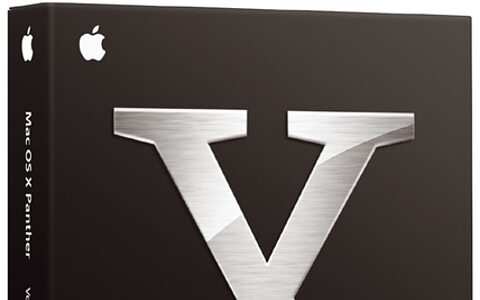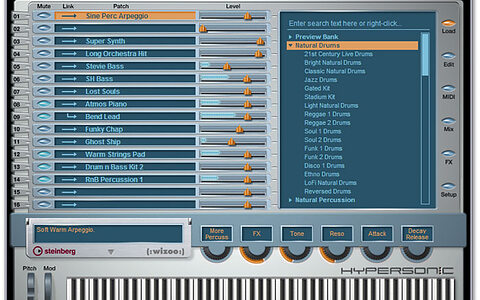
Macs On The Move
It's been possible to make music on Apple laptops for many years now, but creating a working mobile system is harder than it looks. Fortunately, one SOS contributor has years of experience to pass on...
To find the exact phrase, put the words in quotes or join them together with a plus sign e.g. live+recording or "live recording".
To find, say, all live recording articles that mention Avid, enter: live+recording +avid - and use sidebar filters to narrow down searches further.

It's been possible to make music on Apple laptops for many years now, but creating a working mobile system is harder than it looks. Fortunately, one SOS contributor has years of experience to pass on...

Mac OS 10.3 (Panther) has been with us a few months, and has been dissected and evaluated to destruction in the mainstream computer press — but just how useful are its new features for Mac-based musicians and engineers?

It's been a long wait, but the original slice-and-dice loop editing program has finally made it to Mac OS X. Is it still an essential tool a decade after its original launch?


Over the last 10 years, Sibelius Software have built a reputation for providing what most musicians consider to be the leading scorewriting software. Now, in version 3, they have teamed up with Native Instruments to provide enhanced playback facilities — but does this upgrade live up to the high standards set by previous releases?

With the move to version 4, BIAS's aptly-named Peak editing package leaves Mac OS9 behind, but offers a wealth of new features: built-in CD burning, a new user interface, Audio Units support, and processing tools including a real-time convolving reverb.

The latest addition to Metric Halo's Mobile I/O range is, like the existing MIO 2882, now available with a powerful DSP option for running audio processing plug-ins.

The latest incarnation of a well-established scoring package holds few surprises, but plenty of power for the asking price.

MOTU's software sampler seeks to be accessible to everyone, irrespective of preferred platform, sequencer or sample format. Can Mach Five really be all things to all people?

It's been nearly four years since Lexicon last produced an audio interface. Does their new USB-based Omega system have what it takes to challenge the likes of Digidesign, Edirol and M-Audio?

Three years ago, Mark Of The Unicorn were the first manufacturer to bring out a working Firewire interface. Now, they've replaced the 828 with a MkII version offering high sample-rate recording, more flexible clocking, MIDI I/O and better metering — and, what's more, they've cut the price.

M Audio's half-rack interface provides a comprehensive selection of analogue and digital I/O at a competitive price.

The latest addition to TC's Powercore range offers the convenience of Firewire connection at a bargain price, with some serious new plug-ins included.

Gary Garritan takes on the orchestral behemoths with a small but perfectly formed library packed with extra features.

If you could have one VST Instrument that emulated a hardware workstation, giving you enough polyphony to produce a complete arrangement with a fairly standard computer, would you be interested? Steinberg and Wizoo think you would...

As a creative, stable and above all fun way of combining audio loops in real time, Ableton's Live has proved an ideal counterpart to Rewire-compatible applications such as Cubase. With version 4 offering a wealth of new features, including MIDI sequencing, could Live now replace traditional sequencers altogether?

M-Audio have broken a price barrier with their Firewire 410, which is easily the most affordable Firewire recording interface on the market.

NI have taken the technology behind Kontakt, and used it to build a sampler that's all about loops.

Looking to extend your sequencer's capabilities with some high-quality effects? Then you're exactly the sort of person Waves are trying to tempt with their most affordable plug-in bundle yet.

Cubase SX 3 is the latest incarnation of one of the best-known brands in sequencing software, offering many new features and tying up the loose ends from previous generations of Cubase. But with increased competition, most notably from Apple and Cakewalk, can Steinberg maintain their cross-platform advantage?